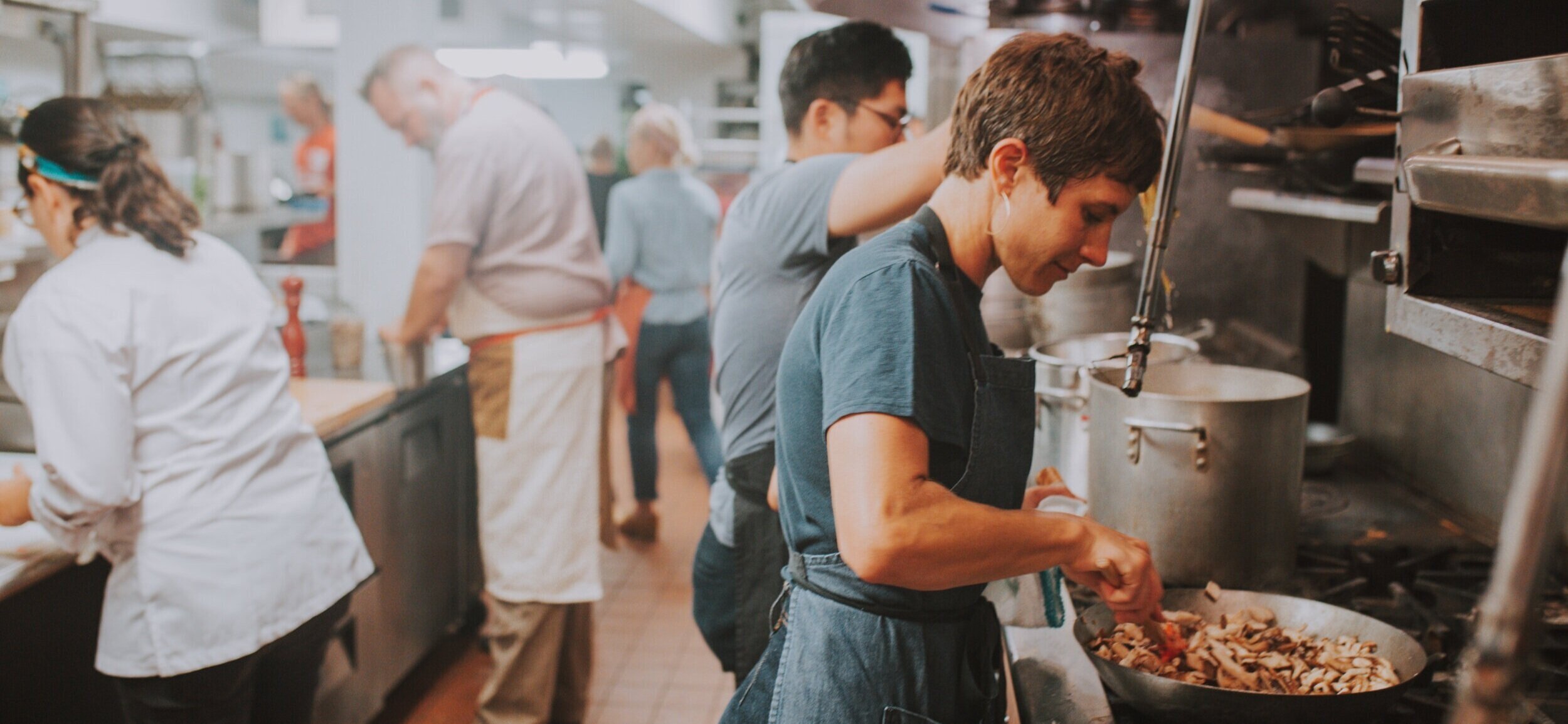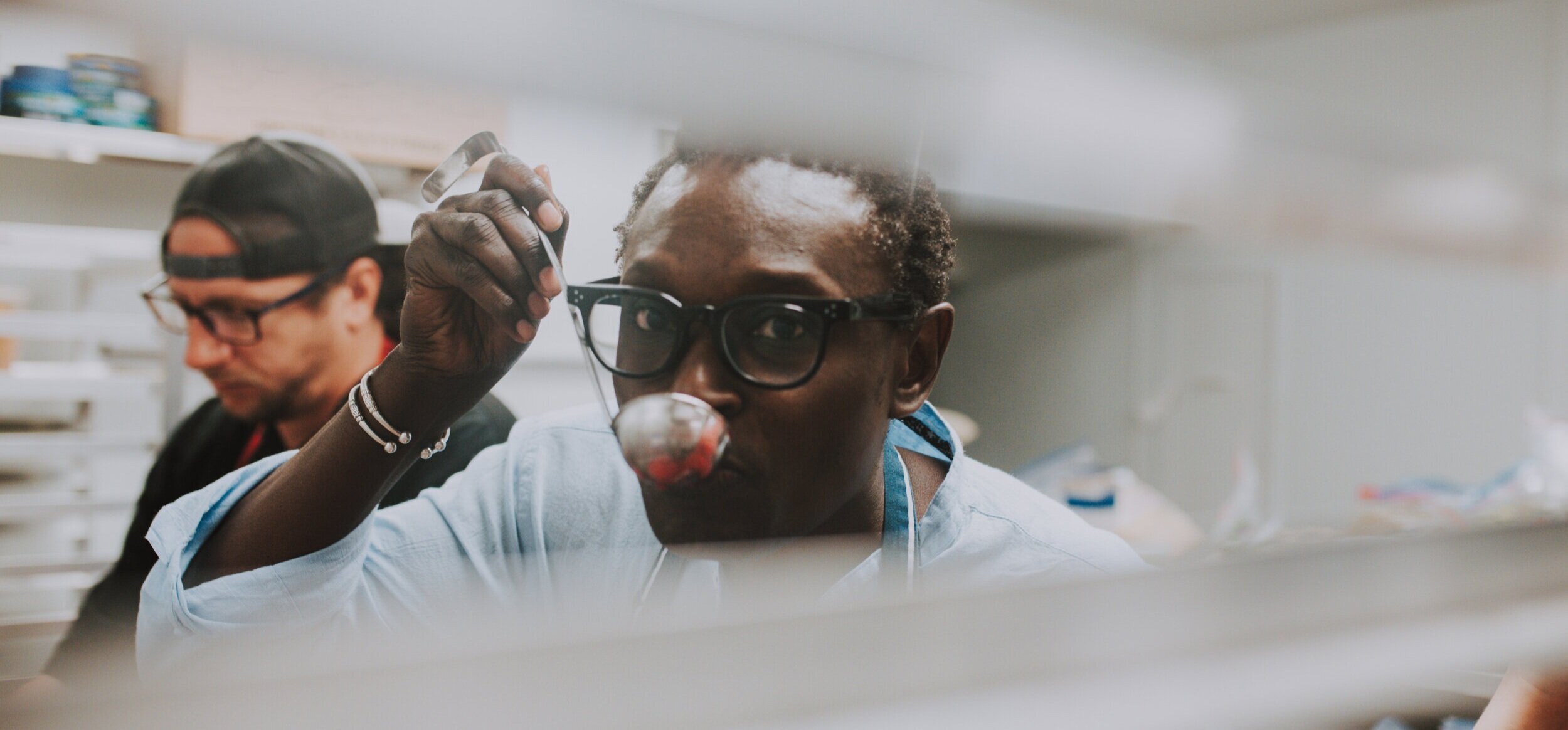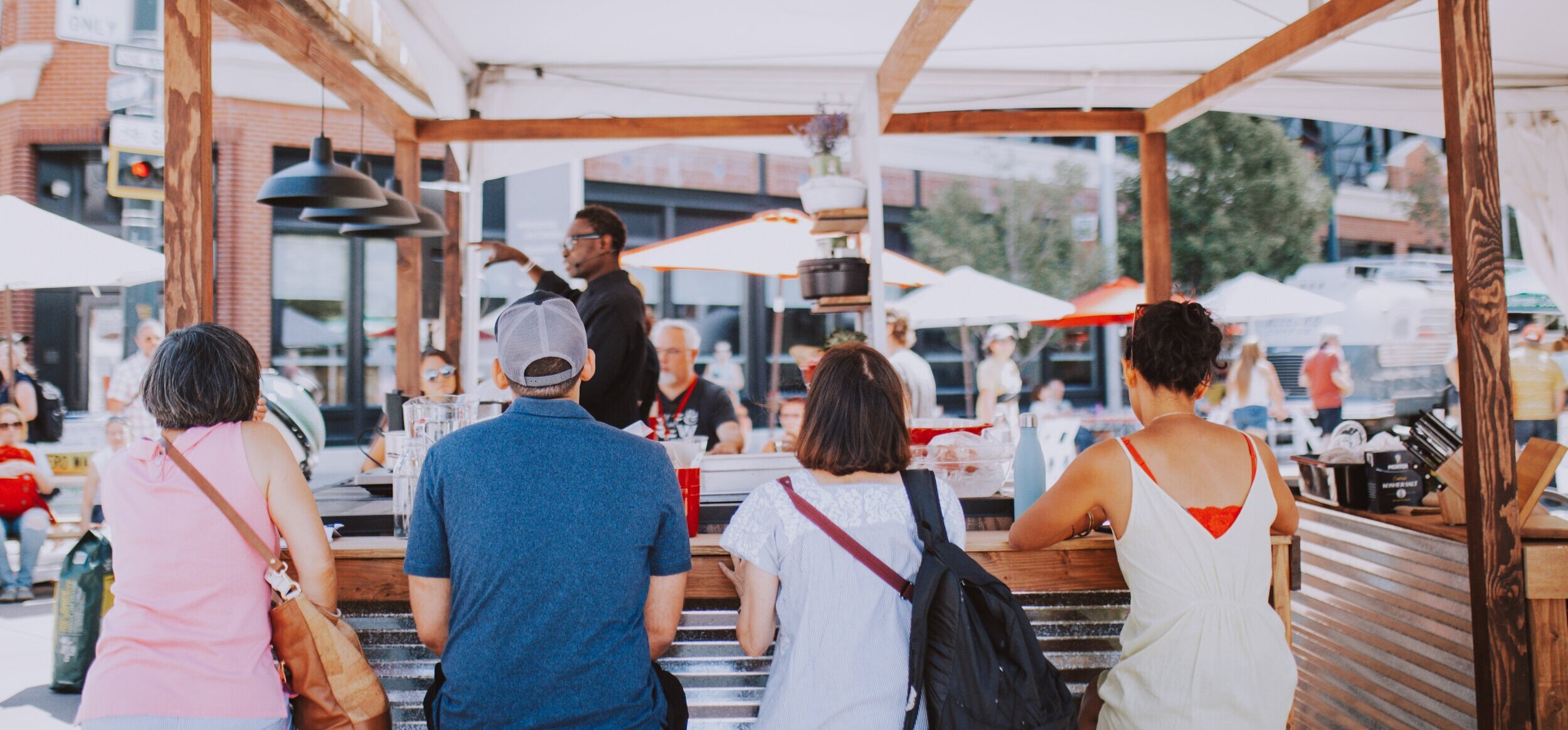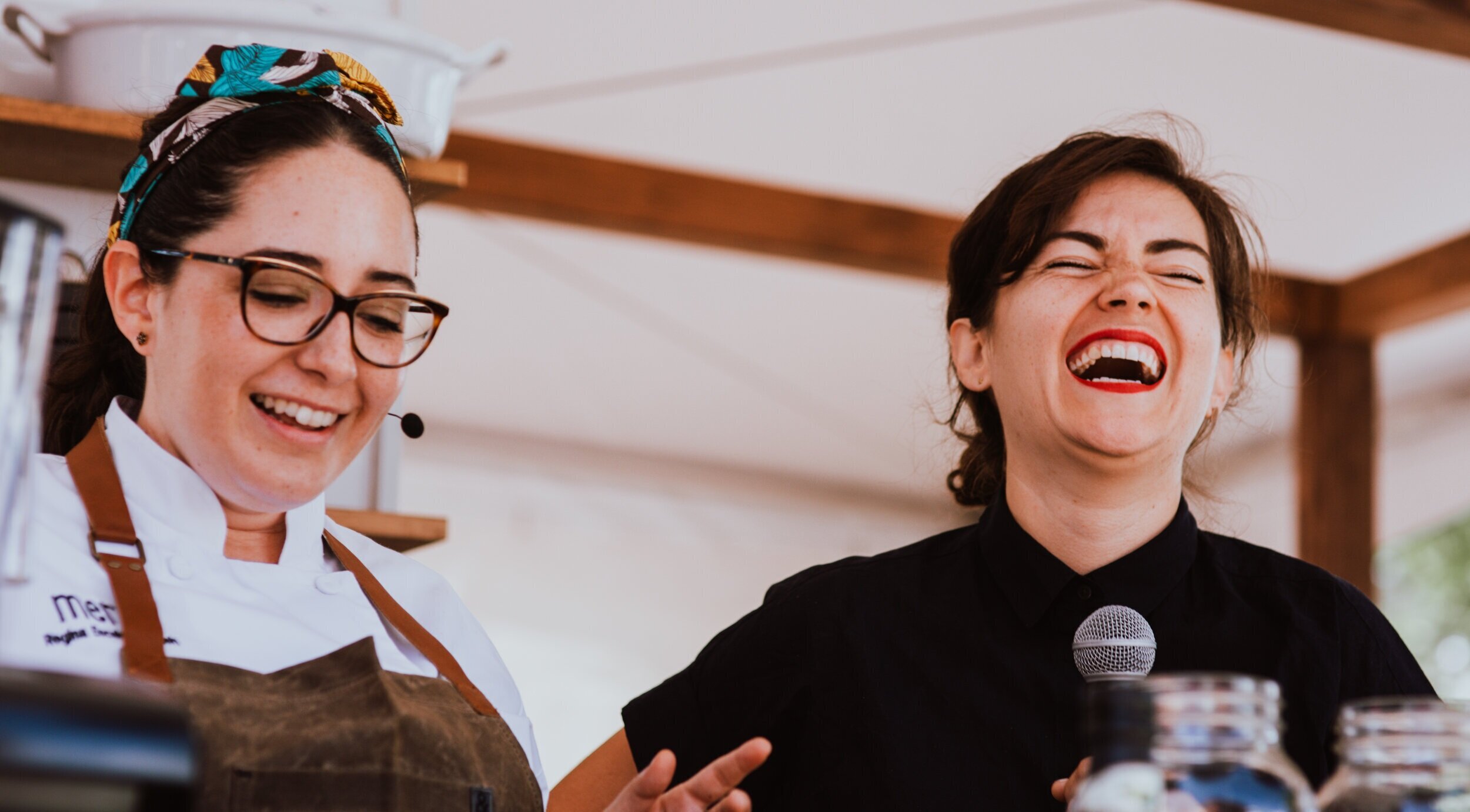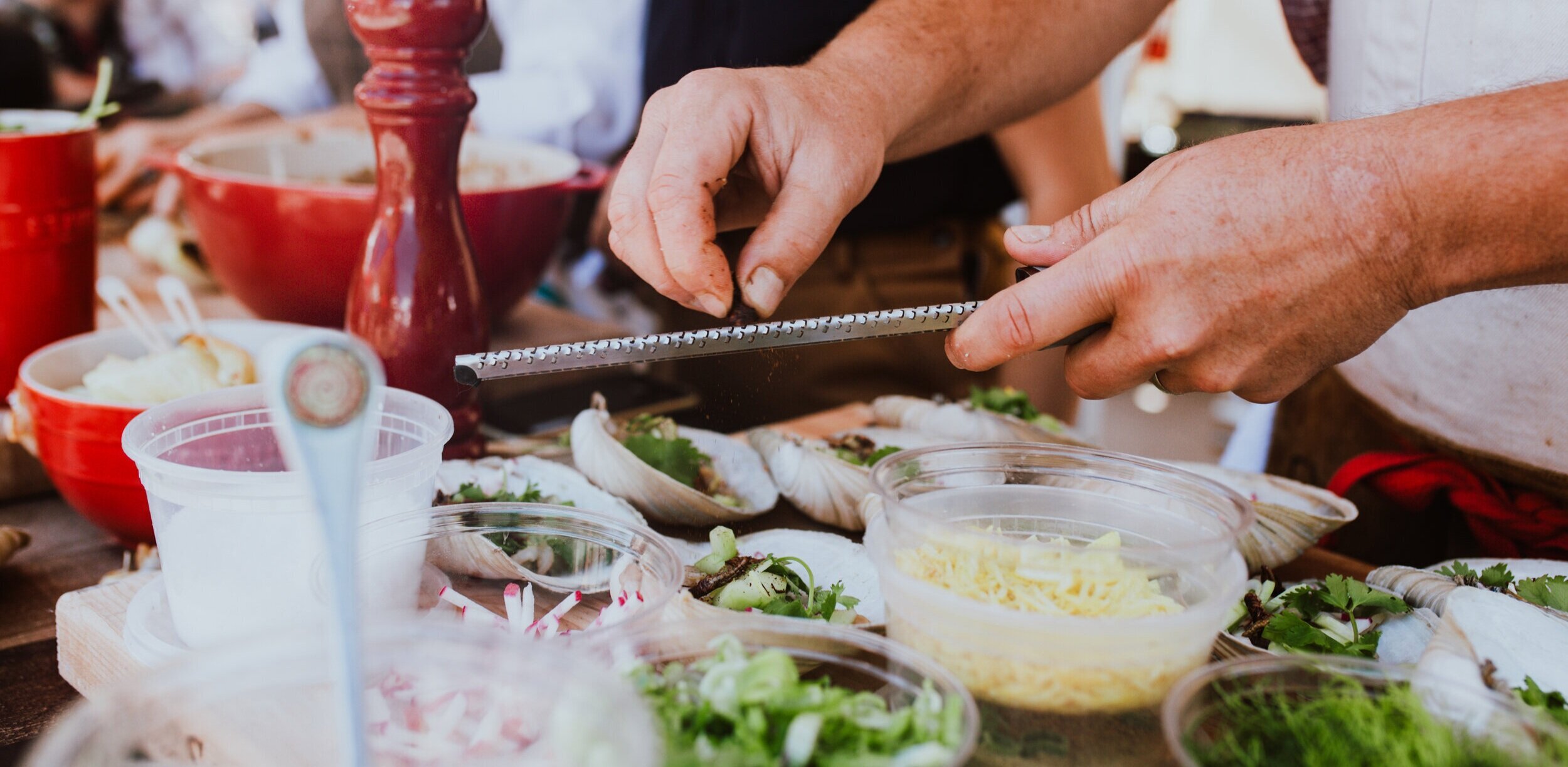Slow Food Nations
Slow Food Nations is the single largest food-based non-profit in the world.
Set in downtown Denver, CO, we host a festival of thirty thousand people in an extravaganza of thoughtful food-based entertainment and learning.
Six months of work and planning go into bringing two hundred top-tier chefs across the world and exposing the variety of their knowledge and culture to eager minds and eager mouths.
Whitegate in this instance plays Culinary Event Manager, a role that has changed every year since 2017, and a role that is both enlivening and exhausting.
Since we started, the festival has grown by five thousand humans and we’ve learned a lot. We learned more about the industry, food, structure, and what managing a community entails.
It’s an incredible and important event.
Let’s walk through through the event.
Site
Denver, CO
Date
2017
Team
Lara Vann-Dagenhardt
―
Slow Food Nations 2017
Whitegate's inaugural year coordinating the festival. We were on the rails for a host of tasks: summits, workshops, meals, exhibitors, speakers.
It was also the year that we, as a team, developed what has now become a festival tradition: the Zero Waste Community Supper.
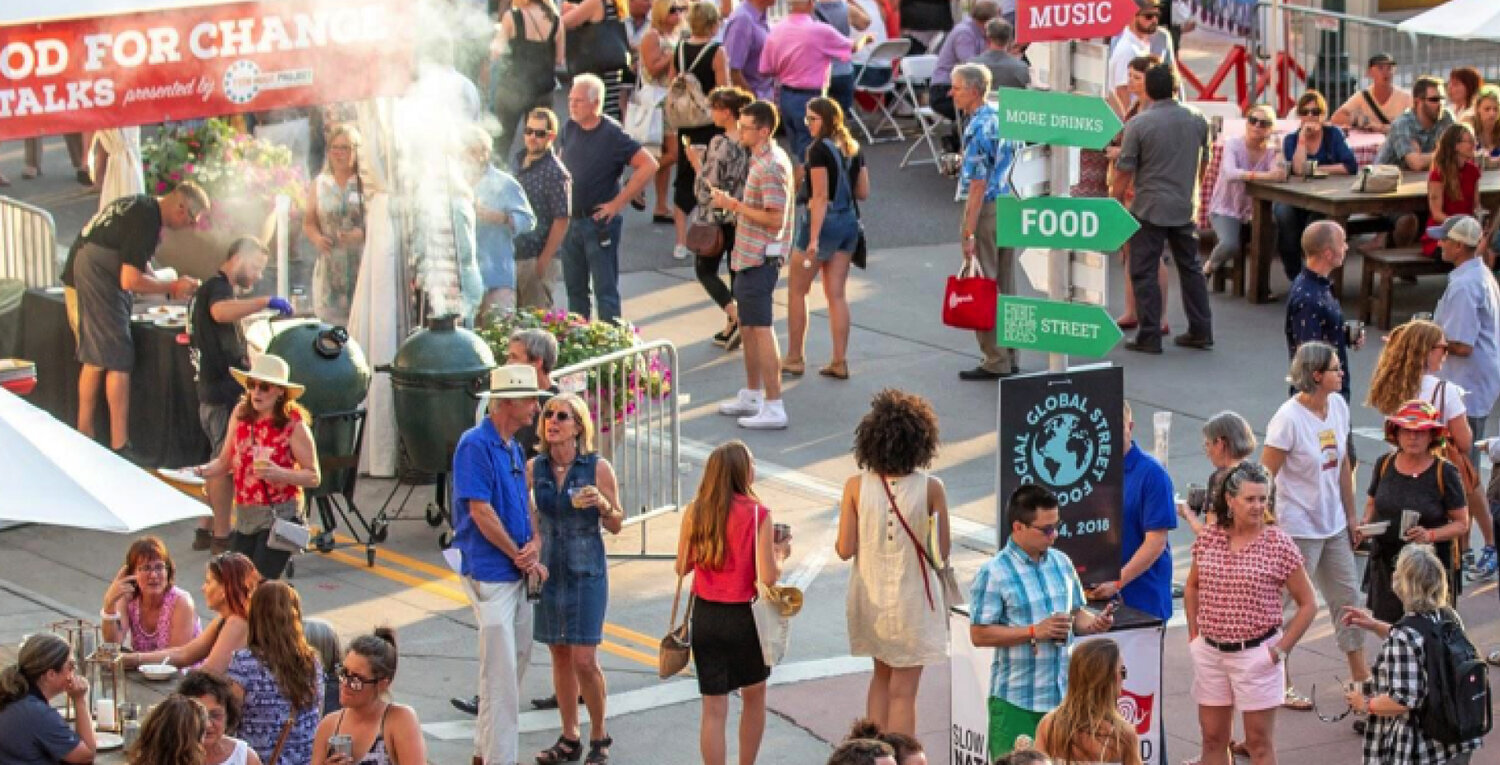
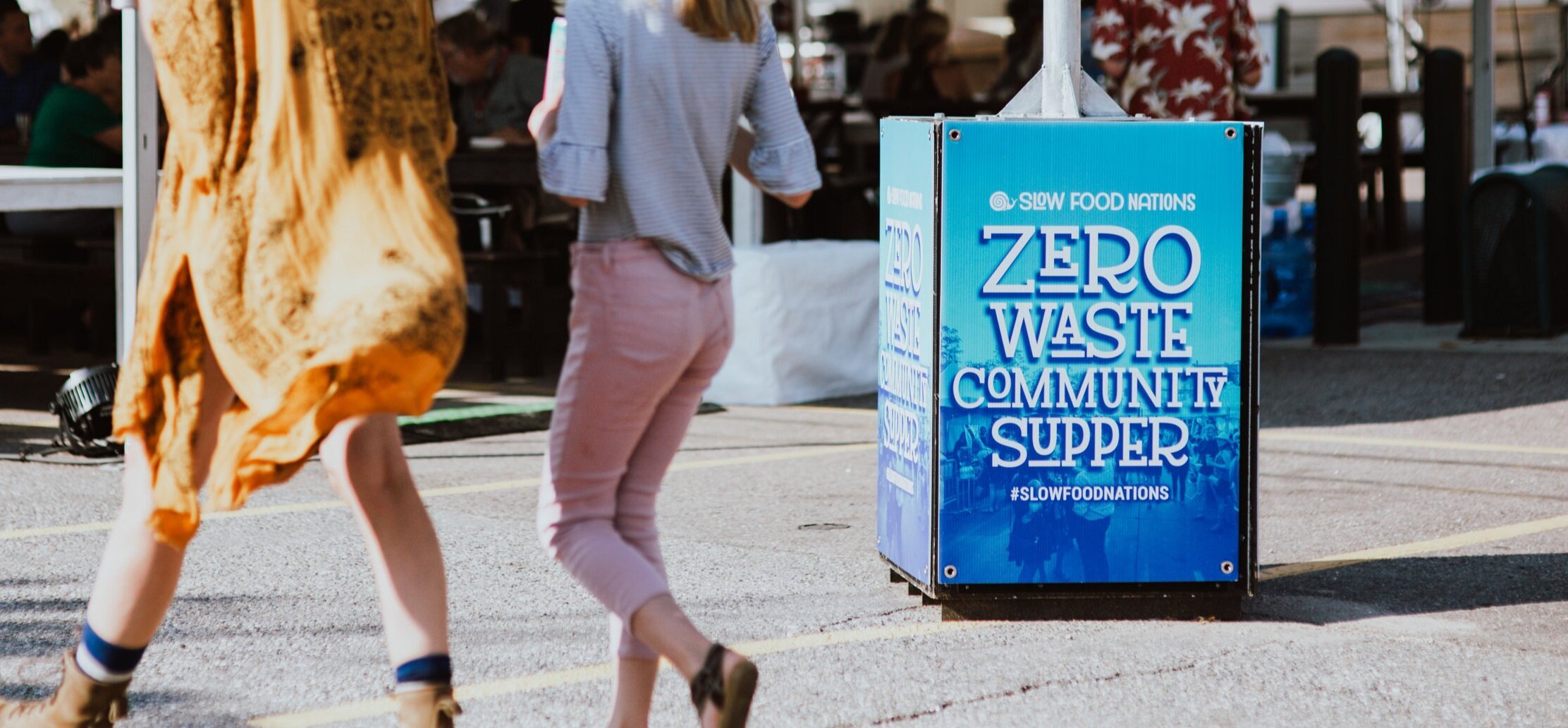
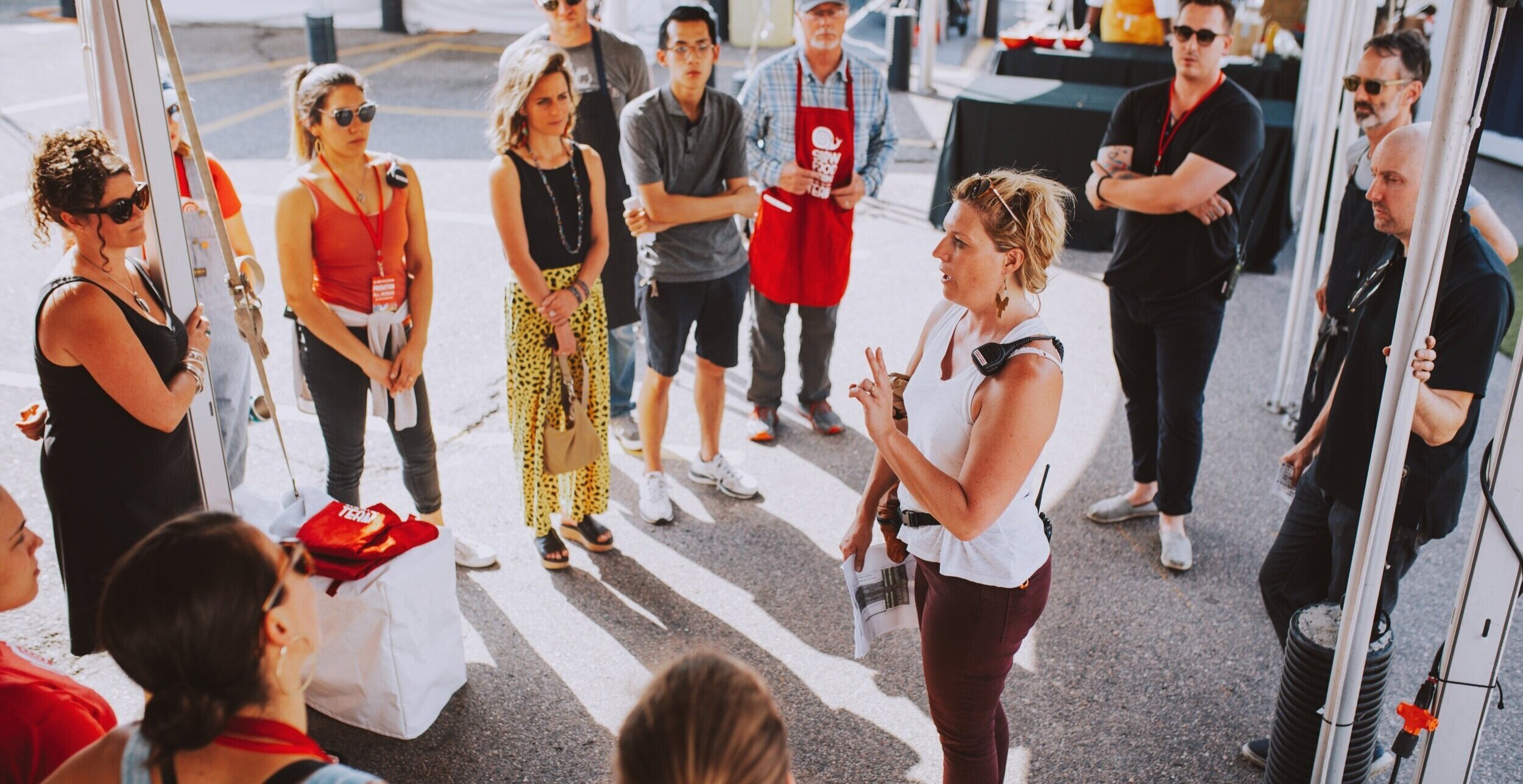
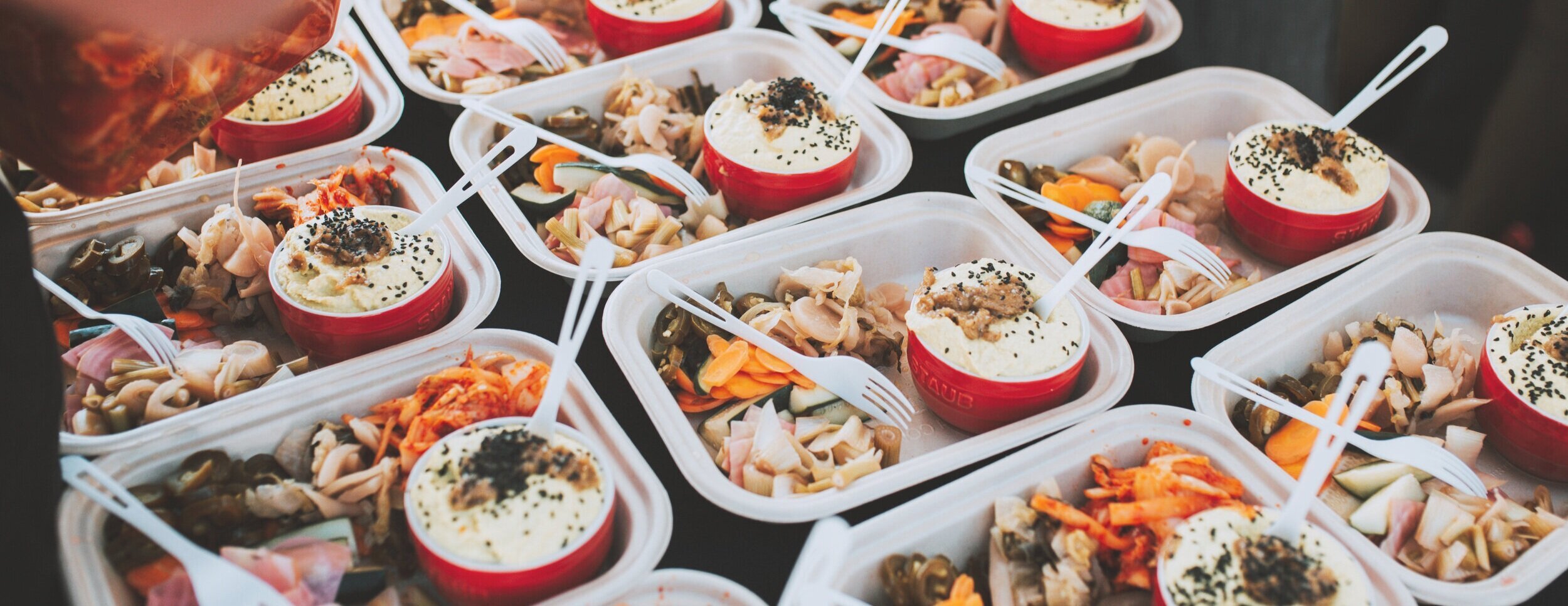
The Zero Waste Community Supper:
If you’ve never heard of Slow Food, regard it as the opposite: Fast Food.
"Opposite": it’s considerate, it’s healthy, but it’s not by definition expensive.
“One of the hallmarks of Fast Food is waste. From the wrapping to the byproduct to the monstrous farms where it starts. Thus, we created its opposite. The Zero Waste Community Supper is the pinnacle of left-over eating.”
It’s about knowing what you’re eating—whether ‘slow’ comes from your attention to what it is or how it has come into being—it's about seeing food as something that isn’t just now, headed for your tummy, but that also has a past.
One of the hallmarks of Fast Food is waste. From the wrapping to the byproduct to the monstrous farms where it starts. Thus, we created its opposite. The Zero Waste Community Supper is the pinnacle of left-over eating.
Over three days our team goes to every event and shoulder-taps every chef. They track refrigeration, they track proper storage—amidst rainstorms and not—they tag everything, inventory it, store it, and share the details with guest chefs who can pick those super ripe peaches, those donuts, these oysters, that salmon, that shredded pork, and turn them into a whirlwind pop-up 400-seat restaurant feast, family-style.
It’s an all-hands-on-deck event—the marketers are servers, the sponsorship team is running food. It’s kind of breathless and we couldn’t be prouder.
Chef Eric Lee is the rock at the center of it. He’s militant about his inventories and attentive to the finest details. Chef Satterfield of Miller Union in Atlanta has played a huge role over the years and chef Drew Deckman of Deckman’s as well as a host of other wonderful faces have filled the ranks of front and back-of-house to make this thing happen.
Site
Denver, CO
Date
2018
Team
Lara Vann-Dagenhardt
―
Slow Food Nations 2018
The Zero Waste Community Supper was a marked success, and couldn’t have been done in 2017 without the commissary kitchen.
The entire festival couldn’t be done without the commissary kitchen.
In 2018, we took that responsibility on, in addition to what we’d done in 2017, dreaming up content, laying out events, incorporating sponsors, managing visual details, and fleshing out a program for the training and employment of an army of volunteers.
The Commissary Kitchen
Being a visiting chef—you’re not coming in with Jamie Oliver’s retinue. You’re probably traveling with a suitcase full of dried heirloom grains, in coach, and they’re probably charging you for it.
We have to make sure that no matter how bad the travel accommodations you had were when you land, you have a kitchen. You have a kitchen, ingredients, and a schedule. Because you’re cooking for many, and so are two hundred other chefs all operating in the same three-day window.
At the festival's heart is this little rented space that our team stocks, inventories, tracks, staffs, delivers to, delivers from—you name it.
It’s a beehive of activity, full of eager people with active knives, some out for the joy, some for the knowledge, and some looking for work.
The logistics that go into the commissary kitchen—its maintenance, everything, would again not be possible without Chef Eric Lee. To boot, sponsorships from the likes of Bargreen Ellingson, Larimer Square, and more provide space and fill our larders & dish shelves with world-class supplies.
Site
Denver, CO
Date
2019
Team
Lara Vann-Dagenhardt
―
Slow Food Nations 2019
So picture that. The little heart, pumping mise en places on sheet trays and rollers carts from workshop to workshop to the Kitchen Counter Demo Stage, one of our added responsibilities in 2019, along with a leadership summit and more attention to what the content within the festival was saying about the state and culture of food, now.
The Kitchen Counter Demo Stage
On the weekend, the streets are closed from 15th to Speer and Larimer. A neighborhood flooded with people and excitement.
Symbiotic, a tremendous production crew who puts on huge events, has built all of our stages, and specifically at the crossroads of the event in 2019, stood the Kitchen Counter Demo Stage.
There, a mixture of cultural ambassadors and chefs showcased the prime elements of their work, whether ingredients, attitudes, how-tos, and why-nots.
Fonio:
Fonio, the Ancient Miracle Grain / Chef Pierre Thiam from Senegal discussed fonio or ‘po’, an overlooked cereal of the Sahel region of Africa, suggesting mainstream attention might be a means to combat the way desertification is limiting opportunity and encouraging the dangerous migration of African youth to ‘better lives in the West.
His Ted Talk is exceptional when you have a moment.
Flavors of African Diaspora / We brought together chef Adrian Miller who wrote a book on the Presidents in the White House and the black chefs underneath them, alongside chef Kevin Mitchell—whose book Black Hands to White Mouths, about how the enslaved people of Africa influenced Southern cuisine will be out next year.
Coastal Flavors of Mexico / The wonderful chef Regina Escalante Bush from the Yucatan spoke (in Spanish), and Ellen Marie Bennett of Hedley & Bennet Aprons moderated, demoing and discussing the variety of treasures inherent to a country bordered by two very different oceans.
The story about the storm that struck Kevin Mitchell’s event begins at 26:13
Restaurant Collaborations
40% of attendees—40% of 30,000 people—flew in from outside of Denver. That’s an amazing migration. That’s 40% of 30,000 people who’ve got some nights free, outside of ‘normal festival hours’, who are undoubtedly interested in how the premier talents on the culinary scene are not only working alone but making together.
With an interest in focusing on the chefs involved as well as the restaurants and providers that they operate with and within, we dreamed and delivered a variety of fusions to round out the festival’s nightlife.
Dinner from the Ground Up with Row 7 / Row 7 Seed Company is the first seed company built on chef-breeder collaboration. In the past seven years, Dan Barber of Blue Hill at Stone Barns in NY has worked alongside vegetable breeder Michael Mazourek to reimagine food from the ground up.
We linked chefs who grow Row 7’s vegetables—Best New Chef Caroline Glover of Annette, chef Paul Reilly who is the nicest chef we’ve ever worked with, and chef Steven Satterfield whose name appears all over Slow Food Nations and who is a James Beard Award Winner in his own right—and the three came together to create a multi-course evening showcasing new and experimental vegetables from the Row 7 rows.
Pickled Pintxos and Paella on the Patio / Sandor Katz is a fermentation revivalist who lives in the woods of Tennessee. Incredibly creative, and a very neat individual, he and chef Adam Branz served up Calasparra rice, chorizo, wild gulf shrimp, and fermented pork ribs at Ultreia, in Denver’s Union Station, a restaurant founded around the shared plate ‘pintxos’ (PEEN-chos) and tapas of the countries of the Iberian Peninsula, Spain, and Portugal.
Culinary Workshops
This is where ideas are born, shared, and materialized. We love the creative process of deciding on content and hosting chefs, producers, and academics at the table. We invited hosts and developed the content for the five website events in 2018 & 2019, procured ingredients, and developed the programming for the fifty guests and media that were in attendance for each activation.
Workshops from 2019
Injera 101 / Genet Gabeye from Ethiopia has been working with Comal Heritage Food Incubator in Denver, an educational platform and restaurant intended to support refugees, practically educating them on how a restaurant functions.
This grandmother of five taught us the simple magic of injera, Ethiopia’s delicious sponge bread, which is both the thing eaten, and the thing that delivers what is to be eaten.
Taste of the Yucatan Peninsula / Regina Escalante Bush, familiar to folks who’ve seen Netflix’s Salt Fat Acid Heat is from Merida, above Tulum in the Yucatan, and she was a humble, wonderful woman to collaborate with. So organized.
She brought spices and peppers in her luggage to showcase cochinita, regional slow-roasted pork tenderized through time and a high acid marinade.
And from previous years:
The Ancient Art of Tortillas / Rick Bayless welcomed guests and traditional cook Benedicta Alejo Vargas Benedicta, who invented a three-corn tortilla with red, blue, and yellow native corn varieties from Michoacan. She explained the ancient technique of nixtamal and the related mysticism from the perspective of Purepecha indigenous culture. Jamey Fader from Lola and Chef Alfonso Rocha Robles joined her and prepared traditional foods from Mexico.
Slow Sake Time / Guests tasted the finest sakes: Fukuju-Junmai and Junmai Ginjo, recognized all over the world, were offered at the official dinner party for the Nobel Prize. The president of the Slow Sake Project, Natsuko Tabata of Japan walked guests through the process of making sake and how to taste its wealth. Sonoko Sakai, a Japanese gastronome from LA, served special dishes to pair while teaching how to cook with koji, the most important and healthy ingredient for making sake, miso, and soy sauce.
Recommendation:
Chef Drew Deckman is an amazing friend of Slow Food Nations; he has been an integral part of every year we’ve coordinated the event.
We stayed with him in Baja, November of 2018. If you are ever in that area, he has the best restaurant we’ve ever been to in our life. He only grills, he wears big goggles. It’s very down-to-earth.


